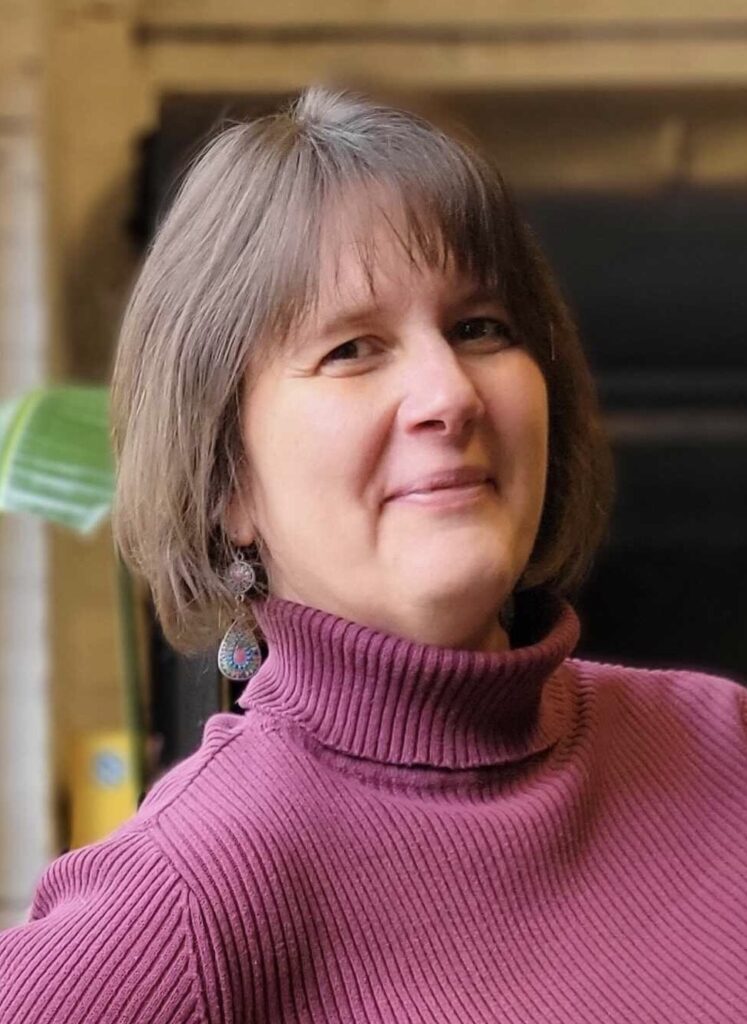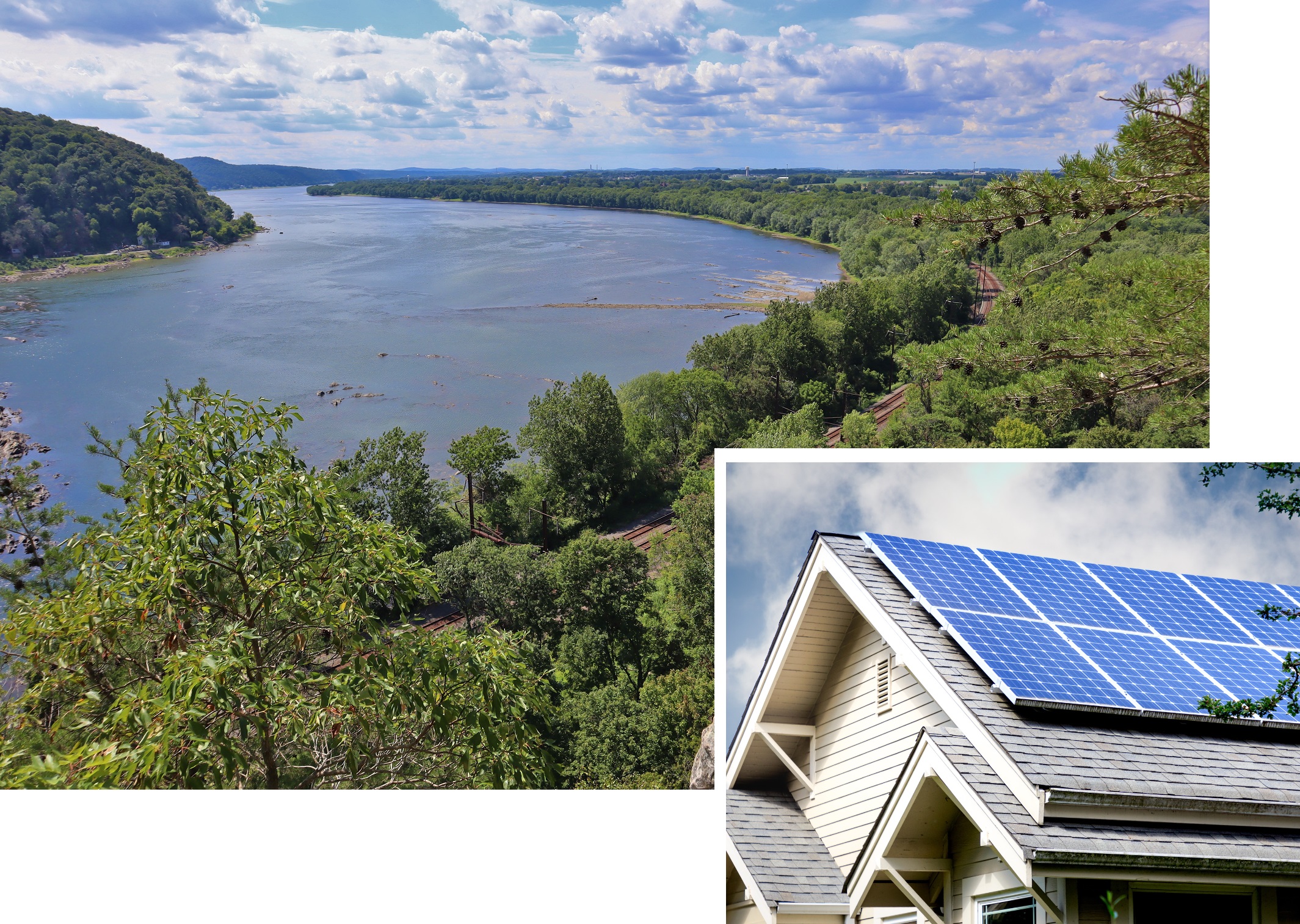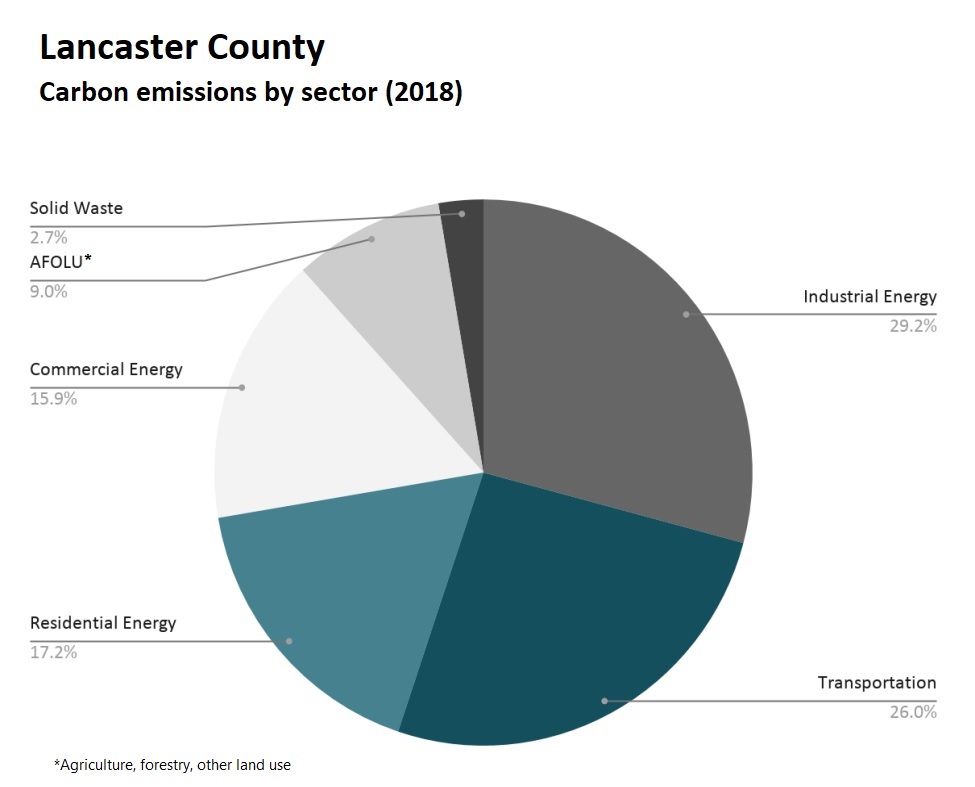A Lancaster-based nonprofit called RegenAll is working to innovate in multiple ways to create green energy outcomes.
Last year, it announced the launch of its Community Climate Fund, a localized carbon offset program.
Leilani Richardson is the fund’s director. One United Lancaster caught up with her recently to talk about the fund, its objectives and how it works, along with other efforts and partnerships that RegenAll is a part of.
By the numbers
In 2020, RegenAll released an inventory of the annual greenhouse gas emissions in Lancaster County, based on the year 2018. Developed in partnership with German nonprofit ICLEI, it estimated a total output countywide of 10.6 million metric tons.
The report determined that Lancaster County spent more than $2 billion on fossil fuel energy in 2018, as follows:
- $801.3 million for transportation
- $555.5 million for industrial energy
- $351.2 million for commercial energy
- $358.5 million for residential energy
“Without local mining or extraction industries, nearly all of this money is leaving the county,” the report said.
How it works
People can donate to the Community Climate Fund by purchasing offsets or by being sponsors or donors, Richardson explained. She described contributions as a “voluntary emissions tax” that allows people to catalyze local environmental work.
The money is used to fund local energy projects, so that people who pay in can see the results directly. That provides greater transparency and accountability than is typically available through national or global carbon offset programs, Richardson believes.

“They can see the projects that are happening as they unfold,” she said, adding that this can improve trust and confidence on the part of people who are giving toward green energy goals. “It’s much more visible.”
The offsets allow businesses and households to reduce their carbon emissions indirectly by funding reductions at other locations.
For example, an individual might pay to offset the carbon emitted during a plane flight. There are many carbon footprint calculators online, including Google’s and the one on RegenAll’s own website.
RegenAll is currently pricing its carbon offsets at $75 per metric ton of carbon dioxide. Donations to the fund are tracked separately from other donations to RegenAll.
A volunteer committee oversees the fund and will provide annual reports on revenue raised and allocations made. Only a few thousand dollars have been raised so far, Richardson said, but RegenAll anticipates rapid growth as awareness and momentum grow.
Initially, proceeds will be used to install heat pumps and provide energy efficiency upgrades for lower-income households. Other initiatives in development include silvopasture — the integration of trees into grazing land — and methane capture.
“There are many options for people and businesses to take advantage of the program,” Richardson said.
Net zero by 2040
The Community Climate Fund is part of RegenAll’s broad suite of programs, all focused on the goal of making Lancaster County a net-zero emissions jurisdiction by 2040.
The nonprofit and its partners, Richardson said, are working toward carbon neutrality all over the county, “in the rural areas and the urban areas.”
One common type of project, she said, is a residential energy audit, which often leads to an energy efficiency upgrade.
That often consists of purchasing and installing new heating systems that are much more efficient. Solar can be part of the equation, as well as new insulation.
Richardson said some houses upgrade to LED lighting, or exchange a gas stove for an electric one.
In more rural areas, many property owners choose plant trees as part of their carbon offset strategy.
Localized solutions
As for new programs, Richardson mentioned the “Drop-a-Ton” program, where people can pay to offset one ton of carbon emissions.
“This is a global scale issue,” Richardson said. “It’s about what we can do on a day-to-day basis, and how we can take action.”
Recognition of the need, she said, is central.
“It’s a lot of outreach and education,” she said, calling the work an “ever-evolving” process.







